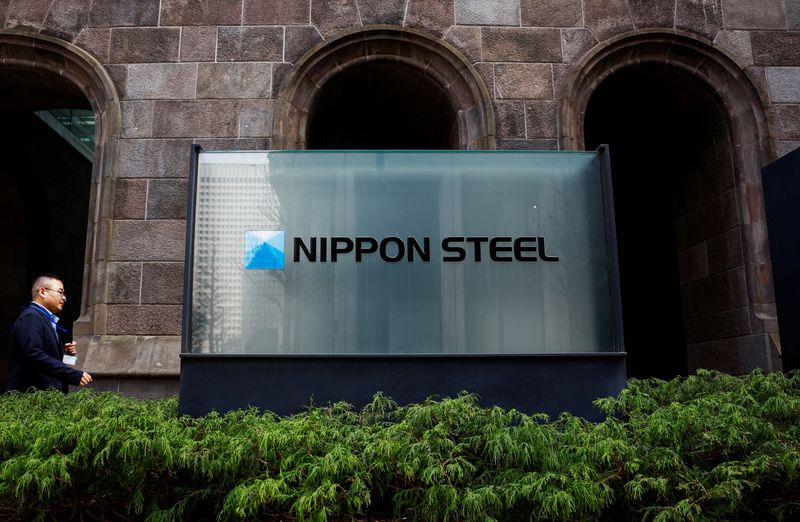WASHINGTON (Reuters) – Nippon Metal defended its $14.9 billion bid for U.S. Metal , arguing it could strengthen the U.S. Metal business and that politics are motivating the U.S. opposition to the deal, in accordance with a strongly worded letter first reported by Reuters.
Here’s a abstract of a few of the key arguments Nippon Metal makes to rebut the nationwide safety dangers that have been outlined by the Committee on International Funding in america (CFIUS), as first reported by Reuters.
CFIUS on Japan as ally
In its letter to the businesses, CFIUS describes Japan as “a critical ally of the United States”, including that the committee “considered the importance of our alliance to both countries’ national security.”
Response by Nippon Metal and U.S. Metal
Of their response, the metal corporations describe the assertion as “essentially paid lip service.” The committee “does not seriously engage with that fact or explain how it impacts their analysis of the risks,” the businesses stated, including that CFIUS does not have in mind a U.S.-Japan settlement which “explicitly recognizes that Japanese steel does not present risk to the U.S. market.”
The businesses additionally assert that CFIUS has “never blocked an acquisition by a Japanese company before.”
CFIUS on India
CFIUS implies that Nippon Metal would possibly determine to maneuver U.S. manufacturing to India, by citing its presence and reported growth there and comparatively decrease manufacturing prices.
“India is one of the largest production markets for Nippon Steel outside of China,” CFIUS stated, citing public stories suggesting Nippon Metal plans to double its manufacturing capability in India by 2030.
“A review of the overall cost of steel production in facilities in the United States and India shows that costs in the United States are significantly higher than that in India,” it added.
Response by Nippon Metal and U.S. Metal
The businesses counter that Nippon Metal’s growth into India won’t threaten its in-roads into the U.S. “India is a growth market for Nippon Steel, but that growth will not come at the expense of Nippon Steel’s commitment to the U.S. market,” they stated.
“Simply put, Nippon Steel intends to invest in the United States and grow U.S. Steel to serve the U.S. market; Nippon Steel is investing in India to develop India-produced steel to serve the Indian market, consistent with India’s similar focus on the development of its domestic steel industry,” they stated.
CFIUS on Tariffs
CFIUS alleged that Nippon Metal makes “limited use of trade remedies,” or measures aimed toward imposing tariffs on international rivals, and has at occasions opposed efforts to erect protecting U.S. tariffs on metal imports. The committee stated this means that its potential takeover of U.S. Metal would possibly imperil its future bids for tariff reduction, regardless of the American firm’s historical past of aggressively searching for tariffs.
“Whereas U.S. Metal regularly petitions for (commerce) reduction, Nippon Metal options prominently as a international respondent resisting commerce reduction for the U.S. home metal business,” CFIUS said.
Response by Nippon Steel and U.S. Steel
“It’s merely not true that Nippon Metal has made ‘restricted use of commerce cures,'” the businesses counter, emphasizing that Nippon Metal has participated in each of the 2 energetic commerce measure proceedings in Japan.

Nippon Metal has additionally just lately referred to as for the Japanese authorities to comply with the U.S. lead and impose an anti-dumping tariff on Chinese language metal exports to guard Japanese home business, the metal companies argue.
However to shore up any doubts, Nippon Metal proposes within the letter to keep up an inner “trade committee” to make sure that choices to pursue commerce instances are made with out interference by Nippon Metal.




